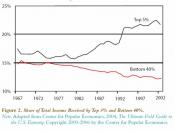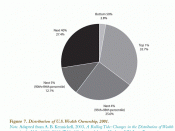Diversity � PAGE \* Arabic �1�
Diversity: Dimensions that Affect Individual Behavior
#########
XXXXXXXX
MGT 331
INSTRUCTOR
30 September 2007
Diversity: Dimensions that Affect Individual Behavior
Abstract
This paper will attempt to link internal and external influences towards individual diversity behavior along the dimensions of socioeconomic status, urban versus rural, age and personality traits; although many other dimensions might be relevant. The purpose of this research is to connect these dimensions to the individual behavior moving towards career development.
For the employers to understand the diversity factors, diversity must be defined and understood. Cavaliere, Mulvaney and Spradley (2002) suggest diversity in the workplace, as a foundation, described as "sensitivity toward and appreciation for the differences among distinct groups of people." Identifying diversity dimensions now is important because the "minority workforce is expected to increase by 25%" (Fullerton & Toossi, 2001) by the year 2050. As a result of this growth, employers in organizations will be gradually influenced not only to adjust to diversity acceptance, but also to implement policies and practices that are effective in coping with such changes.
Companies will be encouraged to focus on diversity and look for ways to become thoroughly inclusive organizations because it has the potential of yielding greater productivity and competitive returns. For now, the focus will surround on just a few dimensions that could bring upon greater cooperation in the workplace; as they impact individual behavior.
Socioeconomic Status
An individual's perception about comprehending the importance of diversity is influenced by their socioeconomic status. For example, in the days gone by, Americans believed that working long hard hours would merit financial stability in the future regardless of the knowledgeable skills and experiences. However, in an article written by Lisa Hawley (2007), the "new wealth in the 1980s and 1990s did not come from long...



Very much on the middle-of-the-fence
I like how you clearly outline and address each variable that would affect this, but seems that you do your best not to make any opinions. Perhaps you could add a little more flavor to the essay to make it more intriguing. Or not - if this is not meant to be like an editorial.
1 out of 1 people found this comment useful.